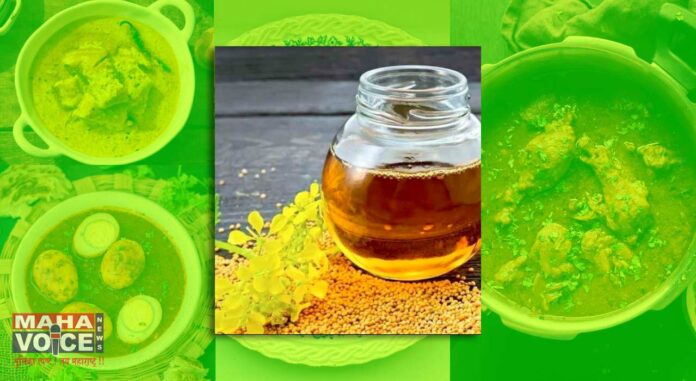By: Dr. Kaviraj Khialani- Celebrity Master Chef.
Introduction Of Mustard Oil:
Mustard oil, derived from the seeds of the mustard plant, is a common cooking oil in many parts of the world, particularly in South Asian and Eastern European cuisines. It has a distinct pungent flavor and is known for its high smoke point, making it suitable for frying and deep-frying.
Additionally, mustard oil is rich in monounsaturated and polyunsaturated fats, as well as omega-3 and omega-6 fatty acids, which are beneficial for heart health. It also contains antioxidants and vitamins like A, D, E, and K, which contribute to its health benefits. Besides cooking, mustard oil is also used in traditional medicine and as a massage oil in some cultures.
Origin Of Mustard Oil
Mustard oil has been used for centuries and its exact origin is not precisely known. However, it is believed to have originated in India, where it has been used for culinary and medicinal purposes for thousands of years. Mustard oil is mentioned in ancient Indian texts like the Vedas and is a common ingredient in traditional Indian cooking.
Over time, its use spread to other parts of the world, including Southeast Asia, Europe, and Africa, where it is also valued for its culinary and health benefits. Today, mustard oil is produced in many countries around the world, including India, Bangladesh, Pakistan, Canada, and the United States.
Health Benefits Of Mustard Oil
Mustard oil offers several health benefits due to its unique composition of fatty acids and other compounds. Some of the key benefits include:
- Heart Health: Mustard oil is rich in monounsaturated and polyunsaturated fats, which are known to be beneficial for heart health. These fats can help reduce bad cholesterol levels (LDL) and increase good cholesterol levels (HDL), thereby lowering the risk of heart disease.
- Rich in Antioxidants: Mustard oil contains antioxidants like vitamin E, which can help protect cells from damage caused by free radicals. This can reduce the risk of chronic diseases like cancer and cardiovascular disorders.
- Anti-inflammatory Properties: Mustard oil has been used in traditional medicine for its anti-inflammatory properties. It may help reduce inflammation in the body, which is linked to various health conditions, including arthritis and heart disease.
- Skin and Hair Benefits: Mustard oil is often used topically for its moisturizing and antibacterial properties. It can help nourish the skin, improve complexion, and promote hair growth when applied to the scalp.
- Rich in Omega-3 Fatty Acids: Mustard oil is one of the few cooking oils that is a good source of omega-3 fatty acids. These fatty acids are essential for brain health, reducing inflammation, and supporting overall well-being.
It’s important to note that while mustard oil offers many health benefits, it should
be used in moderation due to its high erucic acid content, which can be harmful in
large amounts. Additionally, some people may be allergic to mustard oil, so it’s
advisable to perform a patch test before using it topically.
Uses of Mustard Oil in Indian Kitchen
Mustard oil is a popular cooking oil in Indian kitchens, known for its distinct flavor and health benefits. Here are some common uses of mustard oil in Indian cooking:
- Tempering (Tadka): Mustard oil is often used for tempering spices in dishes like
dals (lentils), curries, and vegetables. Heating mustard oil with spices like cumin seeds, mustard seeds, and asafoetida releases their flavors and enhances the taste of the dish. - Marinades: Mustard oil is commonly used as a marinade for meats, fish, and vegetables in Indian cuisine. Its pungent flavor helps to tenderize the ingredients and adds a unique taste to the dish.
- Pickles: Mustard oil is a key ingredient in making Indian pickles. The oil acts as a preservative and adds a tangy flavor to the pickles. Before using it in pickles, mustard oil is often heated and cooled to reduce its pungency.
- Sauteing and Frying: Mustard oil’s high smoke point makes it suitable for sautéing and deep-frying. It is used to fry spices, onions, garlic, and other ingredients before adding the main ingredients in many Indian dishes.
- Flavoring: Mustard oil is sometimes used as a finishing oil to drizzle over dishes like bharta (roasted and mashed vegetables), chaat (Indian street food), and chutneys for added flavor.
- Health Remedies: In traditional Indian medicine (Ayurveda), mustard oil is used for its medicinal properties. It is believed to improve digestion, relieve cold and cough symptoms, and promote overall health.
It’s important to note that while mustard oil is commonly used in Indian cooking,
some people may find its pungent flavor overpowering. It is also advised to use
mustard oil in moderation due to its high erucic acid content, which can be
harmful in large quantities.
Recipes Using Mustard Oil
1) Mustard Oil Fish Curry:
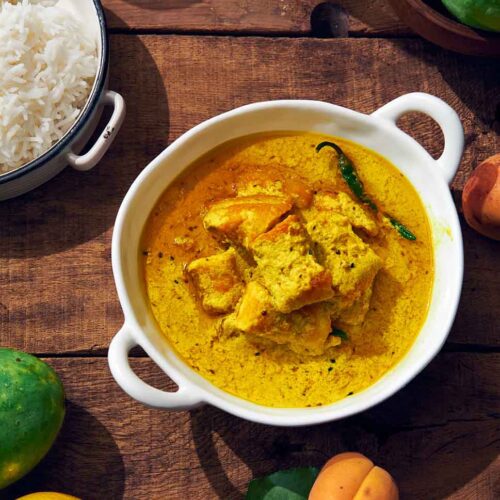
Ingredients:
- 500g fish (any firm-fleshed fish like cod or tilapia), cut into pieces
- 2 tbsp mustard oil
- 1 onion, finely chopped
- 2 tomatoes, chopped
- 1 tsp ginger-garlic paste
- 1 tsp turmeric powder
- 1 tsp red chili powder
- 1 tsp coriander powder
- Salt to taste
- Water
Method:
- Heat mustard oil in a pan and fry the fish pieces until golden brown. Remove and set aside.
- In the same pan, add more mustard oil if needed. Add chopped onions and sauté until golden brown.
- Add ginger-garlic paste, turmeric powder, red chili powder, and coriander powder. Sauté for a minute.
- Add chopped tomatoes and cook until they turn mushy.
- Add water to achieve the desired consistency of the curry. Bring to a boil.
- Add the fried fish pieces, cover, and simmer for 5-10 minutes.
- Serve hot with rice.
2) Mustard Oil Potato Salad:
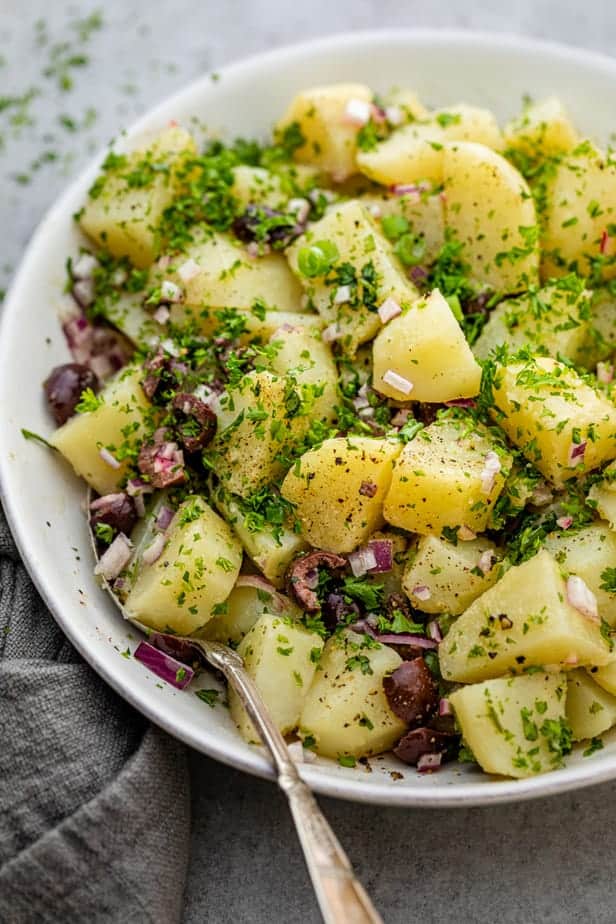
Ingredients:
- 500g potatoes, boiled and diced
- 2 tbsp mustard oil
- 1 tsp mustard seeds
- 1 tsp cumin seeds
- 1 green chili, chopped
- 1/2 tsp turmeric powder
- Salt to taste
- Fresh coriander leaves, chopped
Method:
- Heat mustard oil in a pan. Add mustard seeds and cumin seeds. Let them crackle.
- Add chopped green chili and turmeric powder. Sauté for a minute.
- Add the boiled and diced potatoes. Season with salt.
- Cook for 5-10 minutes, stirring occasionally, until the potatoes are coated with the spices and slightly crispy.
- Garnish with fresh coriander leaves and serve as a side dish.
3) Mustard Oil Chicken Curry:
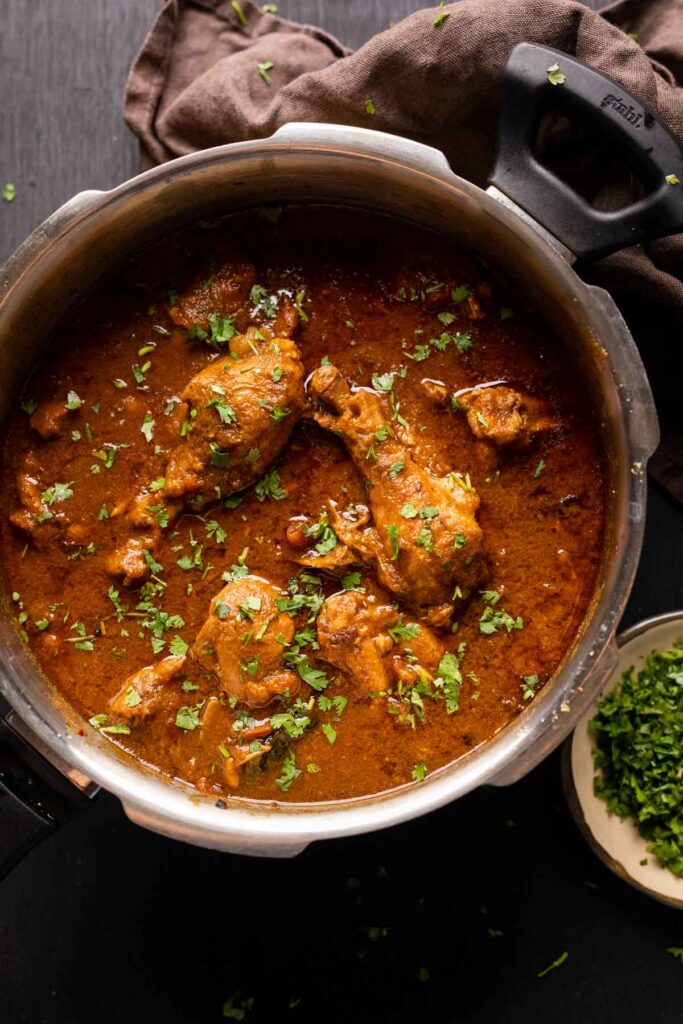
Ingredients:
- 500g chicken, cut into pieces
- 2 tbsp mustard oil
- 1 onion, finely chopped
- 2 tomatoes, chopped
- 1 tsp ginger-garlic paste
- 1 tsp turmeric powder
- 1 tsp red chili powder
- 1 tsp garam masala
- Salt to taste
- Water
Method:
- Heat mustard oil in a pan and fry the chicken pieces until golden brown.
Remove and set aside. - In the same pan, add more mustard oil if needed. Add chopped onions and
sauté until golden brown. - Add ginger-garlic paste, turmeric powder, red chili powder, and garam
masala. Sauté for a minute. - Add chopped tomatoes and cook until they turn mushy.
- Add water to achieve the desired consistency of the curry. Bring to a boil.
- Add the fried chicken pieces, cover, and simmer for 15-20 minutes or until
the chicken is cooked through. - Serve hot with rice or roti.
4) Mustard Oil Green Beans Stir-Fry:
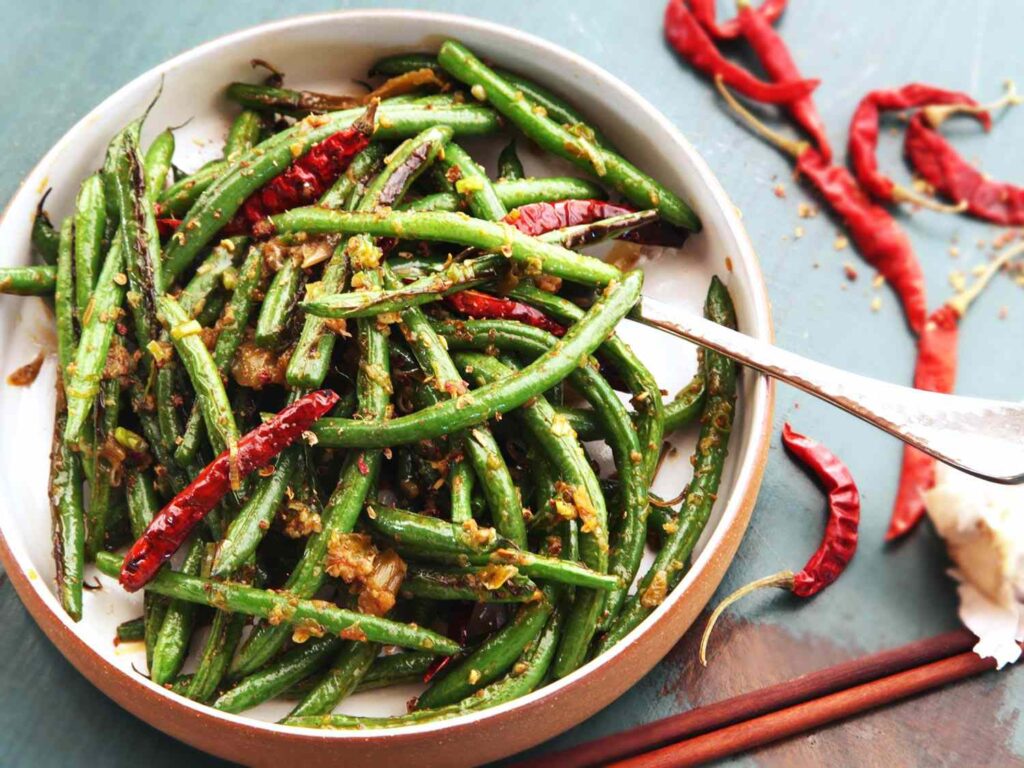
Ingredients:
- 500g green beans, trimmed and chopped
- 2 tbsp mustard oil
- 1 tsp mustard seeds
- 1 tsp cumin seeds
- 2-3 green chilies, slit
- 1/2 tsp turmeric powder
- Salt to taste
Method:
- Heat mustard oil in a pan. Add mustard seeds and cumin seeds. Let them crackle.
- Add slit green chilies and turmeric powder. Sauté for a minute.
- Add chopped green beans and season with salt. Stir-fry for 5-7 minutes or until the beans are tender-crisp.
- Serve hot as a side dish.
5) Mustard Oil Egg Curry:
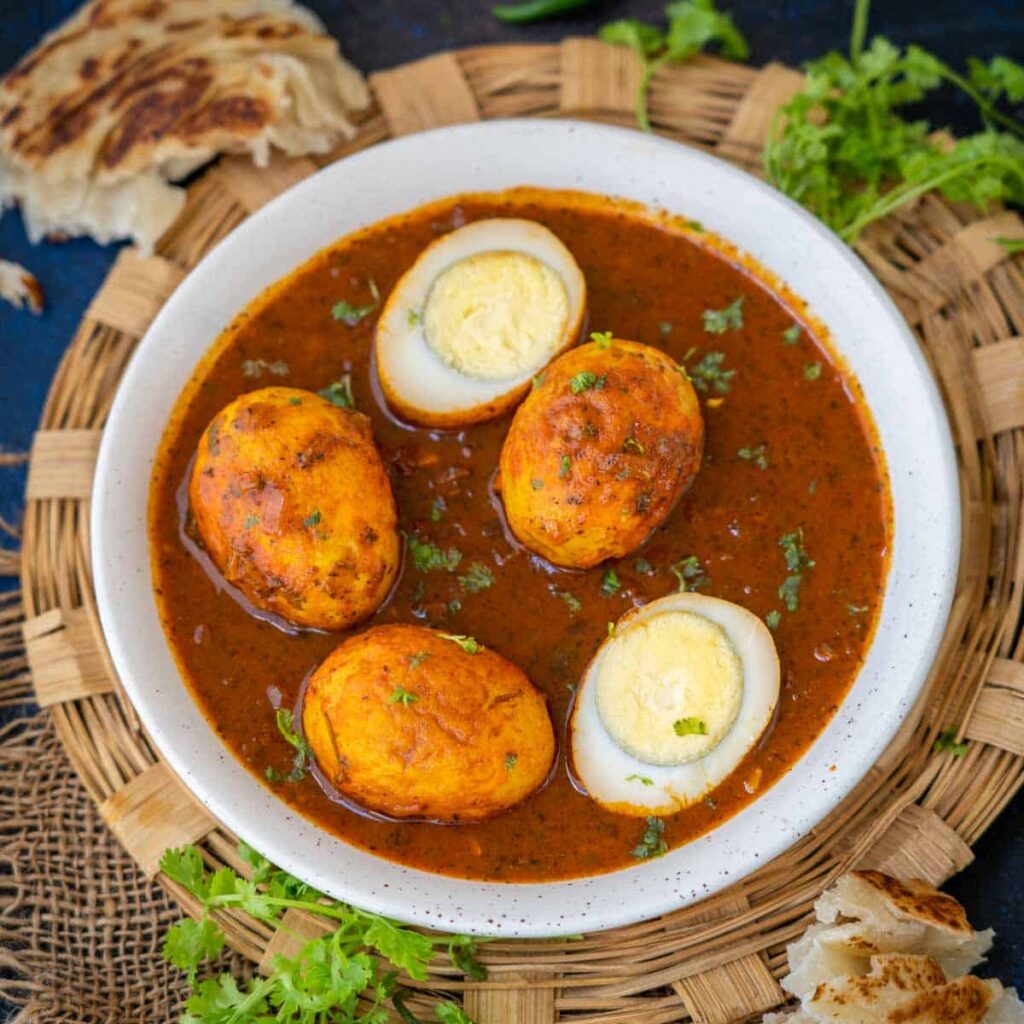
Ingredients:
- 6 hard-boiled eggs, peeled
- 2 tbsp mustard oil
- 1 onion, finely chopped
- 2 tomatoes, chopped
- 1 tsp ginger-garlic paste
- 1 tsp turmeric powder
- 1 tsp red chili powder
- 1 tsp coriander powder
- Salt to taste
- Water
Method:
- Heat mustard oil in a pan and add chopped onions. Sauté until golden brown.
- Add ginger-garlic paste, turmeric powder, red chili powder, and coriander powder. Sauté for a minute.
- Add chopped tomatoes and cook until they turn mushy.
- Add water to achieve the desired consistency of the curry. Bring to a boil.
- Cut the boiled eggs in half and add them to the curry. Cover and simmer for
5-10 minutes. - Serve hot with rice or roti.
6) Mustard Oil Radish Salad:
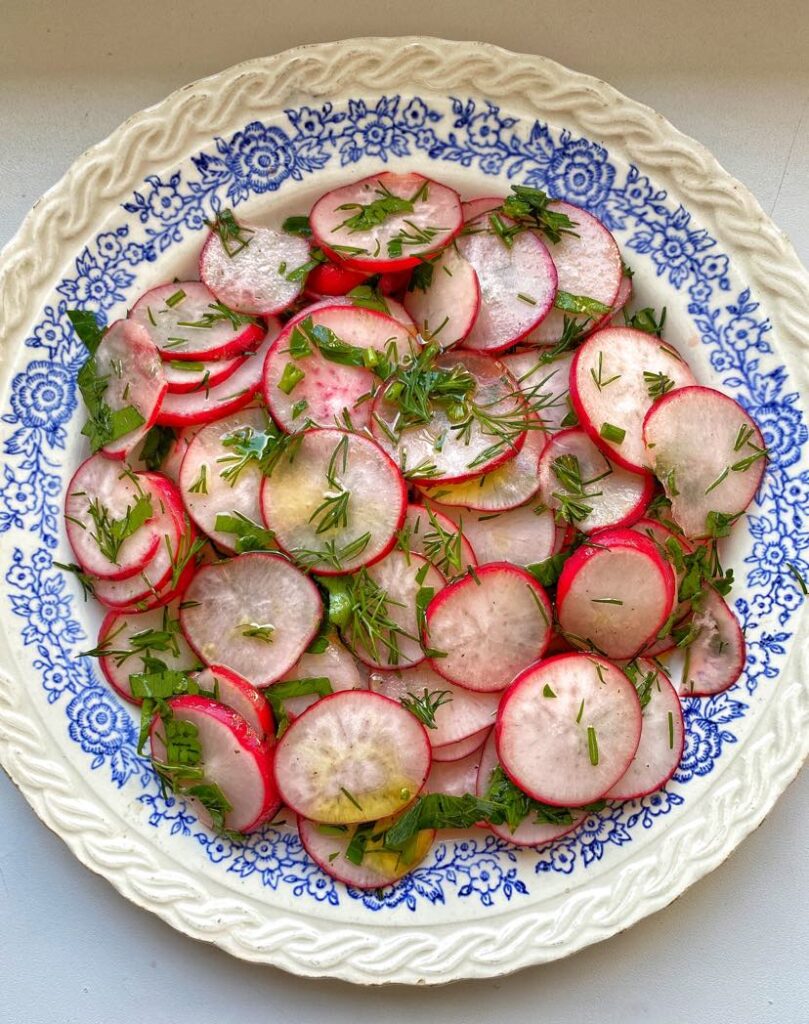
Ingredients:
- 2-3 radishes, thinly sliced
- 2 tbsp mustard oil
- 1/2 tsp mustard seeds
- 1/2 tsp cumin seeds
- 1 green chili, chopped
- 1/2 tsp turmeric powder
- Salt to taste
- Fresh coriander leaves, chopped
Method:
- Heat mustard oil in a pan. Add mustard seeds and cumin seeds. Let them crackle.
- Add chopped green chili and turmeric powder. Sauté for a minute.
- Add the thinly sliced radishes. Season with salt.
- Cook for 5-7 minutes, stirring occasionally, until the radishes are tender.
- Garnish with fresh coriander leaves and serve as a salad or side dish.
Conclusion
Mustard oil is a versatile and flavorful ingredient that adds a unique taste to Indian dishes. From curries to salads, its pungent flavor and health benefits make it a popular choice in Indian kitchens.
However, it should be used in moderation due to its high erucic acid content. Incorporating mustard oil into your cooking can not only enhance the taste of your dishes but also provide various health benefits, making it a valuable addition to your pantry.


